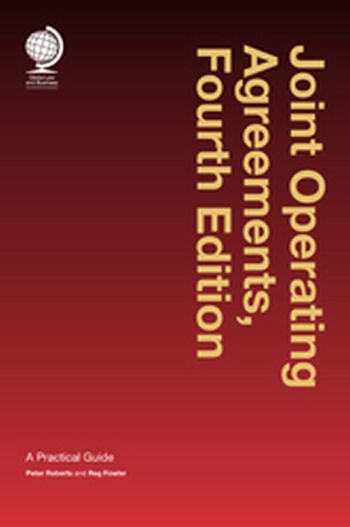
The device(s) you use to access the eBook content must be authorized with an Adobe ID before you download the product otherwise it will fail to register correctly.
For further information see https://www.wildy.com/ebook-formats
Once the order is confirmed an automated e-mail will be sent to you to allow you to download the eBook.
All eBooks are supplied firm sale and cannot be returned. If you believe there is a fault with your eBook then contact us on ebooks@wildy.com and we will help in resolving the issue. This does not affect your statutory rights.
This fourth edition of the leading work on joint operating agreements (JOAs) provides a practical examination of the provisions of a typical JOA, with a particular focus on the critical issues of scope, the operator’s role, joint and exclusive operations, default, transfers and decommissioning. There is also practical analysis of the key issues which apply to the operation of any JOA and the positions which are taken in the leading industry model form contracts. The perspectives of the operator and non-operator are addressed, along with consideration of the domestic and international standards applicable to petroleum projects.
New features include:
Anyone engaged in the development of worldwide exploration and production projects will find Joint Operating Agreements: A Practical Guide, Fourth Edition an essential addition to their professional library.